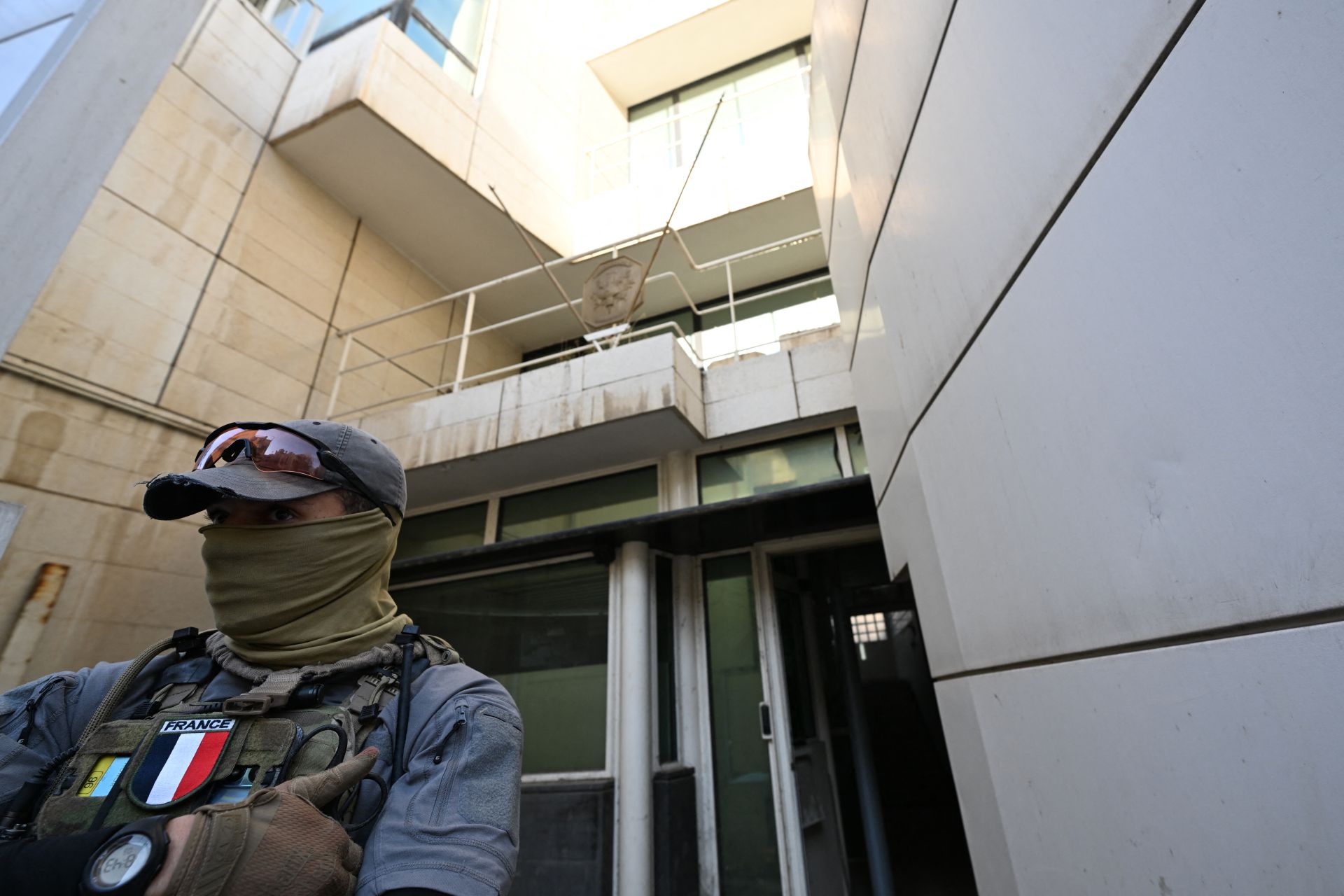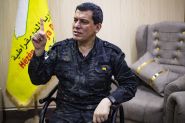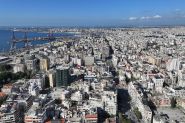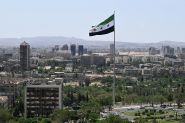- Home
- Middle East
- UN Says ‘Ambitious’ Aid to Country Possible as Western Powers Prepare Return

A member of the French military stands guard at the entrance of the French Embassy building in Damascus on December 17, 2024, in preparation for the arrival of the French diplomatic mission. ©LOUAI BESHARA / AFP
The United Nations humanitarian chief said Tuesday that he was "encouraged" after meetings in Damascus with Syria's new leaders, saying there was a "basis for ambitious scaling-up of vital humanitarian support", as Western diplomatic missions prepare to return to Damascus.
"Moment of cautious hope in Syria," Tom Fletcher said on X after meeting Abu Mohammed al-Jolani, who now uses his real name Ahmed al-Sharaa and who heads Islamist group Hayat Tahrir al-Sham (HTS), which led the lightning offensive that ousted president Bashar al-Assad.
Visiting French special envoy for Syria Jean-Francois Guillaume said his country was preparing to stand with Syrians during the transitional period.
"France is preparing to be with Syrians" during the transitional period "which we hope will be peaceful", Guillaume told journalists, adding that his delegation had come to "make contact with the de facto authorities in Damascus", while an AFP journalist saw the French flag raised in the embassy's entrance hall for the first time since the mission was shuttered in 2012.
France also urged Syria's new rulers to press on with the fight against Islamic State (IS) extremists who had controlled swathes of the country during one phase of its civil war, the foreign ministry said.
French diplomats who went to Damascus to meet the new authorities made clear that Paris would closely watch security in Syria after the fall of Bashar al-Assad "including continuing the fight against Daesh (IS) and other terrorist groups, and preventing the proliferation of the Syrian regime's chemical weapons," it said.
‘Inclusive transition process’
German diplomats will hold talks with Syria's new Islamist-led administration in Damascus on Tuesday, the foreign ministry said in a statement.
The talks will focus on "an inclusive transition process in Syria and the protection of minorities" as well as "the possibilities for a diplomatic presence in Damascus", the ministry said.
Rooted in Syria's branch of Al-Qaeda, HTS is proscribed by several Western governments as a terrorist organisation, though it has sought to moderate its rhetoric and pledged to protect the country's religious minorities.
Western powers are looking to establish contact with Syria's new rulers, aiming to avoid Iraq- or Libya-style chaos after the fall of the Assad regime.
"Syria must not become a play-thing of foreign powers, nor a testing ground for radical forces," the German foreign ministry said.
HTS had acted "cautiously so far" but Germany would "judge them by their actions", it added.
"We know where HTS comes from and are familiar with its origins in al-Qaeda ideology," it said.
"Any cooperation requires that ethnic and religious minorities be protected and that women's rights be respected."
Italy urges 'maximum caution'
Italian Prime Minister Giorgia Meloni said Tuesday her country was ready to engage with Syria's new leadership but urged "maximum caution", particularly over their treatment of Christians.
She said the new leadership would be judged on its attitude towards minorities.
"Italy... is ready to engage with the new Syrian leadership, obviously in the context of assessments and actions shared with European and international partners," Meloni told parliament.
"The first signs seem encouraging but maximum caution is needed. Words must be followed by actions and we will judge the new Syrian authorities on their actions.”
"The decisive element will be the attitude towards ethnic and religious minorities.”
"I am thinking in particular about Christians, who have already paid a very high price and have too often been the object of persecution."
Italy earlier this summer reopened its embassy in Damascus, becoming the first Group of Seven (G7) nation to do so.
Rome holds the rotating presidency of the G7 this year.
EU 'ready to reopen' embassy
The EU is to reopen its mission in Damascus following "constructive" talks with Syria's new leadership, the bloc's foreign policy chief said Tuesday.
"We are ready to reopen our delegation, which is the European embassy, and we want this to be fully operational again. I think this is a very important step, that we will reopen the delegation in Syria," EU top diplomat Kaja Kallas told the European Parliament.
EU foreign policy chief Kaja Kallas said on Monday that she had sent an envoy to Damascus to talk to the new rulers and the United States has also made initial approaches.
She added that Russia and Iran "should not have a place" in war-torn Syria now that Assad is gone.
Iran says awaiting 'necessary conditions'
Iran's foreign ministry said on Tuesday that its embassy in Syrian would reopen once the "necessary conditions" are met, after the diplomatic mission was vandalised following the ouster al-Assad.
"The reopening of the embassy in Damascus requires preparations, the most important of which is ensuring the security and safety of the embassy and its staff," said foreign ministry spokesman Esmaeil Baqaei.
He added that work to that end will be pursued "as soon as the necessary conditions are provided", without offering a specific timeline.
The Iranian embassy in Damascus was ransacked after diplomats abandoned it as rebel forces seized the capital and ousted Assad.
Iran had supported Assad throughout Syria's civil war, which began in 2011.
Since his fall, Iran has sought to distance itself from the deposed leader, instead emphasising the history of friendship between the two countries.
Baqaei said on Tuesday that Iran's "advisory" presence in Syria was "at the invitation of the government".
"We were never in Syria to support a specific person, group or party," he said.
"Our presence in Syria was fundamental and principled, and our withdrawal was responsible."
Baqaei also said that Iran's rival Israel, which has conducted hundreds of air strikes in Syria since Assad's fall and sent troops into a UN-patrolled buffer zone, "severely violated Syria's territorial integrity".
Baqaei also slammed EU’s Kallas remarks as a "joke," adding that the era of foreign powers "trying to dictate (policies) on another region is over."
With AFP
Read more



Comments